Items
Professor Frances Balkwill
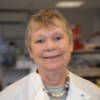 Professor of Cancer Biology; Deputy Centre Lead
Professor of Cancer Biology; Deputy Centre Lead
Summary
My research is focused on the links between cancer and inflammation, being especially interested in translating knowledge of cancer biology into new biological treatments for cancer and in the role that inflammatory cytokines play in cancer promotion. I study the links between cancer and inflammation and research ways of translating this to clinical trial.
Groups
Centre for Tumour Microenvironment
Dr Roberto Bellelli
 Lecturer
Lecturer
Summary
My lab aims to understand the basic mechanisms controlling DNA replication in mammalian cells and how disruption of this process leads to genomic instability and cancer.
Groups
Centre for Cancer Cell and Molecular Biology
Dr Katiuscia Bianchi
 Senior Lecturer in Molecular Oncology
Senior Lecturer in Molecular Oncology
Summary
My research aims to reveal how cancer cells evolve to proliferate and evade cell death in order to develop new therapeutic strategies, in particular for the treatment of breast cancer. I am interested in understanding the contribution of cellular metabolism to cancer cell survival and proliferation.
Groups
Centre for Cancer Cell and Molecular Biology
Dr Andrejs Braun
 Reader in Genome Regulation
Reader in Genome Regulation
Summary
Our group is interested in epigenetic regulation of somatic mutagenesis in normal and malignant B cells. Specifically, we aim to understand how alterations in the nuclear envelope influence B cell chromatin conformation, and what the epigenetic consequences of these alterations are.
Groups
Centre for Haemato-Oncology
Dr Angus Cameron
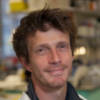 Senior Lecturer in Tumour Biology
Senior Lecturer in Tumour Biology
Summary
Protein kinases represent the largest group of drug targets in cancer therapy. My research focuses on kinases regulating cancer cell growth and motility to understand how and when to target them with drugs.
Groups
Centre for Tumour Biology
Professor Claude Chelala
 Professor of Bioinformatics; Deputy Centre Lead, Centre for Cancer Biomarkers and Biotherapeutics
Professor of Bioinformatics; Deputy Centre Lead, Centre for Cancer Biomarkers and Biotherapeutics
Summary
My research interests lie in the area of translational bioinformatics. Current research projects are focused in high-throughput data analysis, integration with clinical data, databases and software development, particularly for pancreatic cancer and breast cancer.
Groups
Centre for Cancer Biomarkers & Biotherapeutics (BCI); Centre for Computational Biology
Professor Tatjana Crnogorac-Jurcevic
 Professor of Molecular Pathology and Biomarkers
Professor of Molecular Pathology and Biomarkers
Summary
My research focuses on molecular pathology of pancreatic cancer, in particular its development and progression. We are using this knowledge to develop biomarkers for early, non-invasive detection of this malignancy in urine specimens.
Groups
Centre for Cancer Biomarkers & Biotherapeutics
Professor Pedro Cutillas
 Professor of Cell Signalling and Proteomics
Professor of Cell Signalling and Proteomics
Summary
My research group uses unique proteomics and computational approaches to understand how cell signalling pathways driven by the activity of protein kinases contribute to the development of cancer. Increasing this knowledge will be invaluable in advancing personalised cancer therapies.
Groups
Centre for Cancer Genomics & Computational Biology
Dr Jeff Davies
 Reader in Haemato-oncology, Honorary Consultant
Reader in Haemato-oncology, Honorary Consultant
Summary
My group works on developing novel approaches to improve efficacy and safety of allogeneic stem cell transplantation and adoptive immunotherapy as treatments for blood cancers. We focus on T-cell alloreactivity in the context of stem cell transplantation and immunotherapy.
Groups
Centre for Haemato-Oncology
Dr Mirjana Efremova
 Lecturer
Lecturer
Summary
We are interested in understanding the cellular and molecular mechanisms that promote cancer cell plasticity and adaptation of tumour cells in metastatic niches and under therapeutic pressure.
Groups
Centre for Cancer Genomics & Computational Biology
Dr Gabriella Ficz
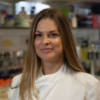 Senior Lecturer
Senior Lecturer
Summary
My group aims to discover the epigenetic changes taking place during cancer initiation and develop potential drugs that can prevent these changes which may be abnormal but reversible, before many damaging mutations occur.
Groups
Centre for Haemato-Oncology
Dr Andy Finch
 Senior Lecturer
Senior Lecturer
Summary
Our group studies changes in metabolism and metabolic stresses that are caused by oncogene activation and how these stresses lead to tumour suppressive responses. We hope that by understanding these processes, we will reveal nodes of metabolic regulation that can be targeted to develop new cancer therapies.
Groups
Centre for Tumour Biology
Professor Jude Fitzgibbon
 Professor of Personalised Cancer Medicine; Centre Lead, Centre for Cancer Genomics and Computational Biology
Professor of Personalised Cancer Medicine; Centre Lead, Centre for Cancer Genomics and Computational Biology
Summary
My research group works on molecular pathology, genetics and progression of leukaemia and lymphomas, aiming to improve on current diagnostic, prognostic and treatment strategies.
Groups
Centre for Cancer Genomics & Computational Biology
Dr Paolo Gallipoli
 Clinical Senior Lecturer in Haemato-Oncology
Clinical Senior Lecturer in Haemato-Oncology
Summary
My research interests focus on mechanisms of disease initiation and maintenance and the identification and validation of novel therapeutic targets in myeloid leukaemias.
Groups
Centre for Haemato-Oncology
Dr Miguel Ganuza
 Lecturer
Lecturer
Summary
Our goal is to identify mechanisms that support haematopoietic stem cell function and understand how the leukaemic stem cells 'play' with these mechanisms to thrive.
Groups
Centre for Haemato-Oncology
Dr Susana Godinho
 Reader in Cancer Cell Biology
Reader in Cancer Cell Biology
Summary
Our research group focuses on understanding how centrosome amplification impacts tumour progression and how we can target cells with amplified centrosomes to develop new cancer therapies.
Groups
Centre for Cancer Cell and Molecular Biology
Professor Trevor Graham
 Professor of Cancer Evolution; Deputy Centre Lead, Centre for Cancer Genomics and Computational Biology
Professor of Cancer Evolution; Deputy Centre Lead, Centre for Cancer Genomics and Computational Biology
Summary
My lab measures the patterns of clonal evolution that define carcinogenesis and develops novel mathematical tools for analysis and prediction. By characterising tumour evolution, we aim to find better ways to determine prognosis and more effective ways to treat cancers.
Groups
Centre for Cancer Genomics & Computational Biology
Professor John Gribben
 Professor of Medical Oncology; Centre Lead, Centre for Haemato-Oncology
Professor of Medical Oncology; Centre Lead, Centre for Haemato-Oncology
Summary
My primary research interests include the immunotherapy of cancer (including stem cell transplantation), the identification of B-cell-tumour antigens, and the detection and treatment of minimal residual disease in leukaemia and lymphoma.
Groups
Centre for Haemato-Oncology
Professor Richard Grose
 Professor of Cancer Cell Biology; Deputy Centre Lead, Centre for Tumour Biology
Professor of Cancer Cell Biology; Deputy Centre Lead, Centre for Tumour Biology
Summary
We are interested in how cancer cells interact with each other and the microenvironment. We investigate how cancer cells develop resistance to therapies and design drug combination approaches to overcome this.
Groups
Centre for Tumour Biology
Dr Gunnel Halldén
 Reader in Cancer Gene Therapy
Reader in Cancer Gene Therapy
Summary
The research in our team is focused on the development of novel treatment strategies to target prostate cancers and pancreatic cancers using genetically modified viruses that target, replicate and kill cancer cells (replication-selective oncolytic viruses) but leave normal cells unharmed.
Groups
Centre for Cancer Biomarkers and Biotherapeutics
Professor Kairbaan Hodivala-Dilke
 Professor of the Tumour Microenvironment; Deputy Institute Director, Barts Cancer Institute; Centre Lead, Centre for Tumour Microenvironment
Professor of the Tumour Microenvironment; Deputy Institute Director, Barts Cancer Institute; Centre Lead, Centre for Tumour Microenvironment
Summary
We examine molecular mechanisms underlying tumour stromal contributions to tumour growth and therapy efficacy. In particular, angiogenesis (the formation of new blood vessels) and the cancer associated fibroblasts roles, using a combination of cell type-specific knockout and knockin systems in mouse models of cancer and analysis of the cellular and molecular mechanisms behind these observations.
Groups
Centre for Tumour Microenvironment
Dr Zuzana Horejsi
 Lecturer
Lecturer
Summary
My lab focuses on discovering functions of phosphorylation induced by damaged DNA in normal and cancer cells, and investigating the role of different phosphorylation events in cancer development.
Groups
Centre for Cancer Cell and Molecular Biology
Professor Louise Jones
 Professor of Breast Pathology
Professor of Breast Pathology
Summary
My research in breast cancer focuses on the progression of in situ to invasive disease, with the aims of identifying 1) markers which can predict behaviour and 2) novel therapeutic targets.
Groups
Centre for Tumour Biology
Dr Ioanna Keklikoglou
 Lecturer
Lecturer
Summary
Our group focuses on understanding the molecular and cellular mechanisms that mediate resistance to anti-cancer therapies in breast cancer. Using state-of-the-art mouse models of cancer, as well as quantitative molecular and cellular approaches, we are interested in dissecting the microenvironmental cues that orchestrate specific tumour responses and metastasis formation.
Groups
Centre for Tumour Microenvironment
Dr Stéphanie Kermorgant
 Reader in Cellular Oncology
Reader in Cellular Oncology
Summary
We study the role of growth factor receptor signalling and intracellular trafficking (movement inside cells) in tumour growth and metastasis in the view of improving cancer therapy.
Groups
Centre for Tumour Biology
Professor Hemant Kocher
 Professor of Liver and Pancreas Surgery
Professor of Liver and Pancreas Surgery
Summary
I am a surgeon-scientist. My clinical research interests include tissue banking, clinical trials, innovative surgical techniques, epidemiology, meta-analysis and patient care pathways. My translational research interests include pancreatic cancer stroma and tumour-stroma cross-talk including cell signalling, adhesion, metastasis, invasion, leading to innovative therapies and novel biomarkers.
Groups
Centre for Tumour Biology
Professor Kamil Kranc
 Clinical Professor of Haematology; Deputy Centre Lead, Centre for Haemato-Oncology
Clinical Professor of Haematology; Deputy Centre Lead, Centre for Haemato-Oncology
Summary
Our research aims to understand the biology of leukaemia stem cells and identify the mechanisms they use to escape treatments.
Groups
Centre for Haemato-Oncology
Dr Sergey Krysov
 Senior Lecturer
Senior Lecturer
Summary
My studies concentrate on the immunogenetics of human B cell malignancies, such as chronic lymphocytic leukaemia, follicular lymphoma and the role for B cell receptor in the development of B cell lymphoma and leukaemia
Groups
Centre for Haemato-Oncology
Dr Rifca Le Dieu
 Clinical Reader
Clinical Reader
Summary
I am an Honorary Consultant at Barts Health NHS Trust where I have a lymphoma practice. Since joining Barts, I have taken an active interest in clinical trials and joined the NCRI Hodgkins Lymphoma subgroup. I speak at the Lymphoma Action Management Course on relapsed Hodgkin's lymphoma.
Groups
Centre for Haemato-Oncology
Professor Nick Lemoine
 Professor of Molecular Oncology; Director, Barts Cancer Institute; Centre Lead, Centre for Cancer Biomarkers and Biotherapeutics
Professor of Molecular Oncology; Director, Barts Cancer Institute; Centre Lead, Centre for Cancer Biomarkers and Biotherapeutics
Summary
My groups' primary research interests are in the genomics and molecular pathology of pancreatic cancer and the development of oncolytic virotherapy. We use global profiling approaches at the genomic and proteomic levels to identify targets that can be exploited for detection and treatment of this disease.
Groups
Centre for Cancer Biomarkers & Biotherapeutics
Dr Michelle Lockley
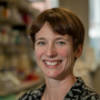 Reader in Medical Oncology; Honorary Consultant; Deputy Centre Lead, Centre for Cancer Cell and Molecular Biology
Reader in Medical Oncology; Honorary Consultant; Deputy Centre Lead, Centre for Cancer Cell and Molecular Biology
Summary
Our lab aims to improve treatments for women with ovarian cancer, particularly those that are resistant to chemotherapy. We are interested in developing therapies that can adapt to the evolution of chemotherapy resistance over time.
Groups
Centre for Cancer Cell and Molecular Biology
Professor Yong-Jie Lu
 Professor of Molecular Oncology
Professor of Molecular Oncology
Summary
We aim to identify genetic alterations that influence cancer development, progression and therapeutic responses, in particular for prostate cancer, and further develop them into biomarkers for cancer diagnosis and therapeutic stratification, with a current focus on circulating biomarkers.
Groups
Centre for Cancer Biomarkers and Biotherapeutics
Dr Faraz Mardakheh
 Lecturer
Lecturer
Summary
My lab utilises state-of-art multi-omics methodologies to study how protein synthesis is dysregulated in cancer cells, and how this dysregulation contributes to various stages of cancer progression.
Groups
Centre for Cancer Cell and Molecular Biology
Professor John Marshall
 Professor of Tumour Biology; Centre Lead, Centre for Tumour Biology
Professor of Tumour Biology; Centre Lead, Centre for Tumour Biology
Summary
I study the biology of tumour invasion with a particular interest in the roles of the adhesion molecules expressed on the cell surface that mediate this process. Our group concentrates on the study of integrins that are the principal family of adhesion molecules that mediate interaction between cells and the extracellular matrix (ECM).
Groups
Centre for Tumour Biology
Dr Sarah Martin
 Reader in Cancer Cell Biology; Deputy Centre Lead, Centre for Cancer Cell and Molecular Biology
Reader in Cancer Cell Biology; Deputy Centre Lead, Centre for Cancer Cell and Molecular Biology
Summary
Our research is based on exploiting DNA repair defects in cancer for the identification of new personalised therapies. We use compound and siRNA screening to identify new therapeutics for tumours based on their specific DNA repair status.
Groups
Centre for Cancer Cell and Molecular Biology
Dr Sarah McClelland
 Senior Lecturer in Molecular Oncology
Senior Lecturer in Molecular Oncology
Summary
My lab aims to understand the mechanisms that underlie numerical and structural chromosome aberrations in cancer at a molecular level, which also involves understanding how normal cells replicate and segregate their genomes.
Groups
Centre for Cancer Genomics & Computational Biology
Dr Stuart McDonald
 Reader in Gastrointestinal Biology
Reader in Gastrointestinal Biology
Summary
Our research focuses on stem cell niches and clonal expansion in Barrett's oesophagus, stomach and breast cancer.
Groups
Centre for Cancer Genomics & Computational Biology
Dr Jessica Okosun
 Clinical Senior Lecturer
Clinical Senior Lecturer
Summary
My research focuses on understanding the genetic and molecular mechanisms that underlie the initiation and progression of B-cell non-Hodgkin's lymphomas in order to define clinically-relevant biomarkers.
Groups
Centre for Haemato-Oncology
Dr Luigi Ombrato
 Lecturer
Lecturer
Summary
My group studies how different populations of immune cells in the tumour microenvironment cross-talk in order to establish a "favourable" niche in metastasis.
Groups
Centre for Tumour Microenvironment
Dr Oliver Pearce
 Lecturer
Lecturer
Summary
The focus of our research is the tumour microenvironment (TME). We are particularly interested in understanding the composition and function of the tumour extracellular matrix in immunosuppression.
Groups
Centre for Tumour Microenvironment
Dr Barrie Peck
 Lecturer
Lecturer
Summary
My lab aims to understand the alterations in metabolism that take place in cancer and investigate whether extrinsic factors, such as diet, influence cancer metabolism and disease trajectory. We then want to uncover whether these dependencies can be exploited therapeutically.
Groups
Centre for Tumour Biology
Professor Thomas Powles
 Professor of Genitourinary Oncology
Professor of Genitourinary Oncology
Summary
My main research interests are in genital and urinary cancers, and I lead a spectrum of clinical studies from phase I to randomised phase III. The majority of the studies are translational phase II studies investigating novel targeted and immune therapies.
Groups
Centre for Experimental Cancer Medicine
Dr David Propper
 Senior Lecturer
Senior Lecturer
Summary
My focus is on detailed translational trials in pancreatic cancer, with a focus on targeting the tumour microenvironment. Our aim is to define what perturbations occur in tumours of patients receiving trial drugs.
Groups
Centre for Tumour Microenvironment
Dr Prabhakar Rajan
 Clinical Senior Lecturer in Urology
Clinical Senior Lecturer in Urology
Summary
My laboratory research explores alternative pre-mRNA splicing in prostate cancer (PCa) biology, and liquid biopsy-derived molecular biomarkers of treatment outcomes. My clinical research investigates chemo-preventative strategies to reduce low risk PCa progression, and surgical alternatives to cytotoxic chemotherapy for metastatic testicular cancer.
Groups
Centre for Cancer Cell and Molecular Biology
Dr Paulo Ribeiro
 Senior Lecturer
Senior Lecturer
Summary
Our research group is interested in uncovering the molecular mechanisms regulating tissue growth, invasion, metastasis and tumour heterogeneity using the fruit fly Drosophila melanogaster as a genetically tractable model organism.
Groups
Centre for Tumour Biology
Dr John Riches
 Clinical Senior Lecturer
Clinical Senior Lecturer
Summary
My major research interest is understanding the metabolism of chronic lymphocytic leukaemia and lymphoma with the aim that this will underpin the development of the next generation of anti-metabolic drugs for these diseases.
Groups
Centre for Haemato-Oncology
Dr Kevin Rouault-Pierre
 Lecturer
Lecturer
Summary
My main research interests are in haematopoietic stem cells and leukemic initiating cells. I seek to understand how intrinsic and extrinsic signals are integrated by normal and malignant stem cells.
Groups
Professor Victoria Sanz-Moreno
 Professor of Cancer Cell Biology
Professor of Cancer Cell Biology
Summary
Our research focuses on how the cytoskeleton of cancer cells regulates transcriptional rewiring during tumour growth and dissemination. We aim to understand how such rewiring affects the tumour microenvironment.
Groups
Centre for Tumour Microenvironment
Professor Peter Schmid
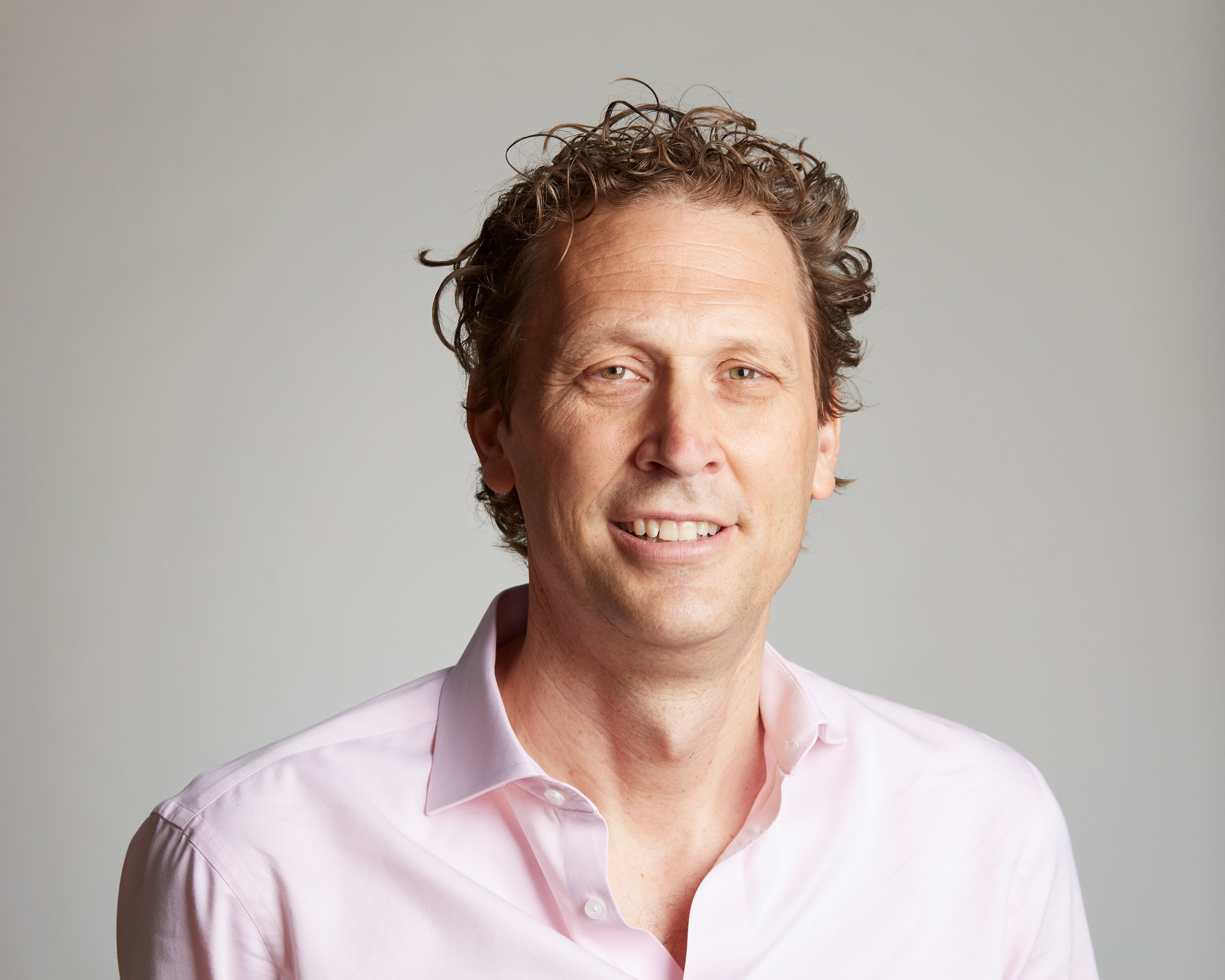 Professor of Cancer Medicine; Centre Lead, Centre for Experimental Cancer Medicine
Professor of Cancer Medicine; Centre Lead, Centre for Experimental Cancer Medicine
Summary
My research interests focus on improving the care of women with breast cancer through clinical trials. I lead a spectrum of clinical studies spanning the spectrum of the disease and ranging from phase I to randomised phase III. The majority of these studies are translational phase II studies investigating novel targeted and immune therapies.
Groups
Centre for Experimental Cancer Medicine
Professor Tyson Sharp
 Professor of Cellular and Molecular Biology; Centre Lead, Centre for Cancer Cell and Molecular Biology
Professor of Cellular and Molecular Biology; Centre Lead, Centre for Cancer Cell and Molecular Biology
Summary
My group's work focuses on the role of the tumour suppressor protein LIMD1 and its family members Ajuba and WTIP and how their deregulation in normal tissue contributes to the development of lung, renal and breast cancer.
Groups
Centre for Cancer Cell and Molecular Biology
Dr Tanya Soliman
 Lecturer
Lecturer
Summary
My research focuses on kinase biology and how kinase signalling pathways are hijacked in cancer. We combine computational biology with proteomics and cell biology to uncover novel ways to target these dysregulated networks.
Groups
Centre for Cancer Genomics & Computational Biology
Dr Jane Sosabowski
 Reader in Preclinical Molecular Imaging
Reader in Preclinical Molecular Imaging
Summary
My main interests are in radiopharmaceutical development and the use of pre-clinical molecular imaging in drug development, especially biopharmaceuticals.
Groups
Centre for Cancer Biomarkers and Biotherapeutics
Dr Lovorka Stojic
 Lecturer
Lecturer
Summary
My group studies how RNA-mediated mechanisms, in particular long noncoding RNAs, regulate cell division and how dysregulation of these processes leads to genome instability and cancer.
Groups
Centre for Cancer Cell and Molecular Biology
Professor Peter Szlosarek
 Professor of Medical Oncology
Professor of Medical Oncology
Summary
My main research interest is in exploring why ASS1 is aberrantly expressed in human cancers and how this knowledge may be exploited for anticancer therapy. I lead an active translational programme from bench to bedside of the arginine-depleting agent ADI-PEG20 in several hard-to-treat cancers including the ADAM, TRAP and ATOMIC clinical studies.
Groups
Centre for Cancer Biomarkers and Biotherapeutics
Dr Jun Wang
 Senior Lecturer
Senior Lecturer
Summary
My main research interests lie in applying bioinformatics and computational approaches to analyse large-scale cancer datasets to uncover novel diagnostic and prognostic features. I also lead the Cancer Research UK Barts Centre Bioinformatics Core Facility.
Groups
Centre for Cancer Genomics & Computational Biology
Professor Yaohe Wang
 Professor of Cancer Cell and Gene Therapy
Professor of Cancer Cell and Gene Therapy
Summary
We work on cancer prevention and immunotherapy using tumour-targeted replicating oncolytic viruses, in particular focusing on replicating adenovirus and vaccinia virus.
Groups
Centre for Cancer Biomarkers & Biotherapeutics
Dr Benjamin Werner
 Lecturer
Lecturer
Summary
My group combines mathematics, computer simulations and genomic information to study evolutionary processes. We aim to understand how a tumour's evolutionary history is reflected in its genome, how evolution can be quantified in individual tumours and how this information predicts future evolution.
Groups
Centre for Cancer Genomics & Computational Biology
Dr Bela Wrench
 Clinical Senior Lecturer
Clinical Senior Lecturer
Summary
My research focuses on the fundamental aspects of leukaemia initiating cell biology in adult acute lymphoblastic leukaemia, with the aim of revealing dependencies that are tractable targets for therapy.
Groups
Centre for Haemato-Oncology